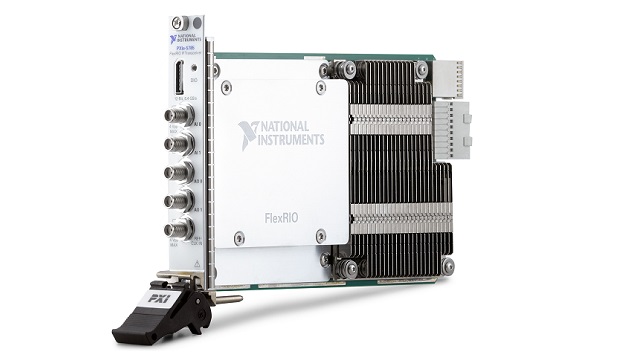NI, the provider of a software-defined platform that helps accelerate the development and performance of automated test and automated measurement systems, announced the FPGA-enabled PXIe-5785 FlexRIO transceiver, which aims to shorten the design cycle for advanced radar applications in aerospace and defense.
Advances in the use of the electromagnetic spectrum continue to drive military electronics to stay ahead of emerging threats. This evolution brings new challenges for the engineers and scientists designing and testing intelligence, surveillance and reconnaissance systems.
“Defense organizations must develop increasingly complex systems in a manner that is both cost and time effective,” said Jason White, Director of product management for automated test and RF at NI. “Engineers throughout the entire design cycle are tasked with shortening the time to successful deployment. NI’s newest PXI FlexRIO transceiver helps engineers accomplish just that.”
The PXIe-5785 FlexRIO transceiver gives engineers access to the latest direct RF converters in a modular, commercial off-the-shelf package to help them shorten the development cycle. By working closely with major technology vendors, NI has incorporated emerging chipsets, including high-speed converters that sample up to 6.4 GS/s with 12-bit resolution. These high-speed converters are critical for modern radar systems, in which increased RF bandwidth equates to better spatial resolution, leads to fewer false detections and enables sophisticated electronic protection techniques.
“We see a growing number of requirements for multichannel RF record and playback and real-time spectrum analysis applications with high dynamic range,” said Ross Q. Smith, cofounder and CEO of RADX Technologies. “Until now, we could not provide a cost-effective solution for these customers. The new FlexRIO transceiver will help us deliver a high-performance, high-channel-count IF solution for precision synchronization and baseband analysis.”
This latest PXI FlexRIO transceiver is part of a larger family of FlexRIO devices with user-programmable Xilinx UltraScale FPGAs, which help engineers meet custom requirements without the high cost of custom design.

